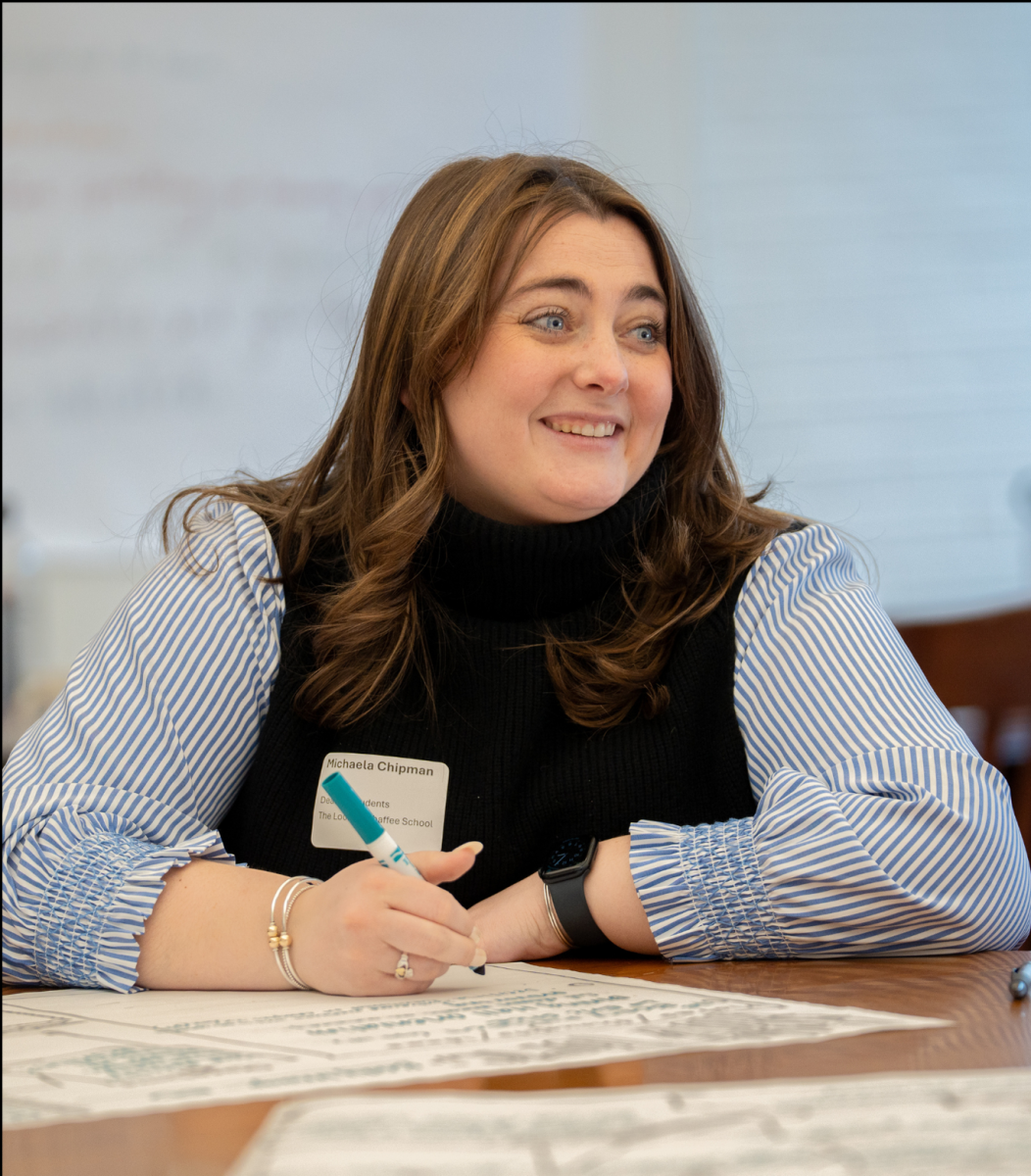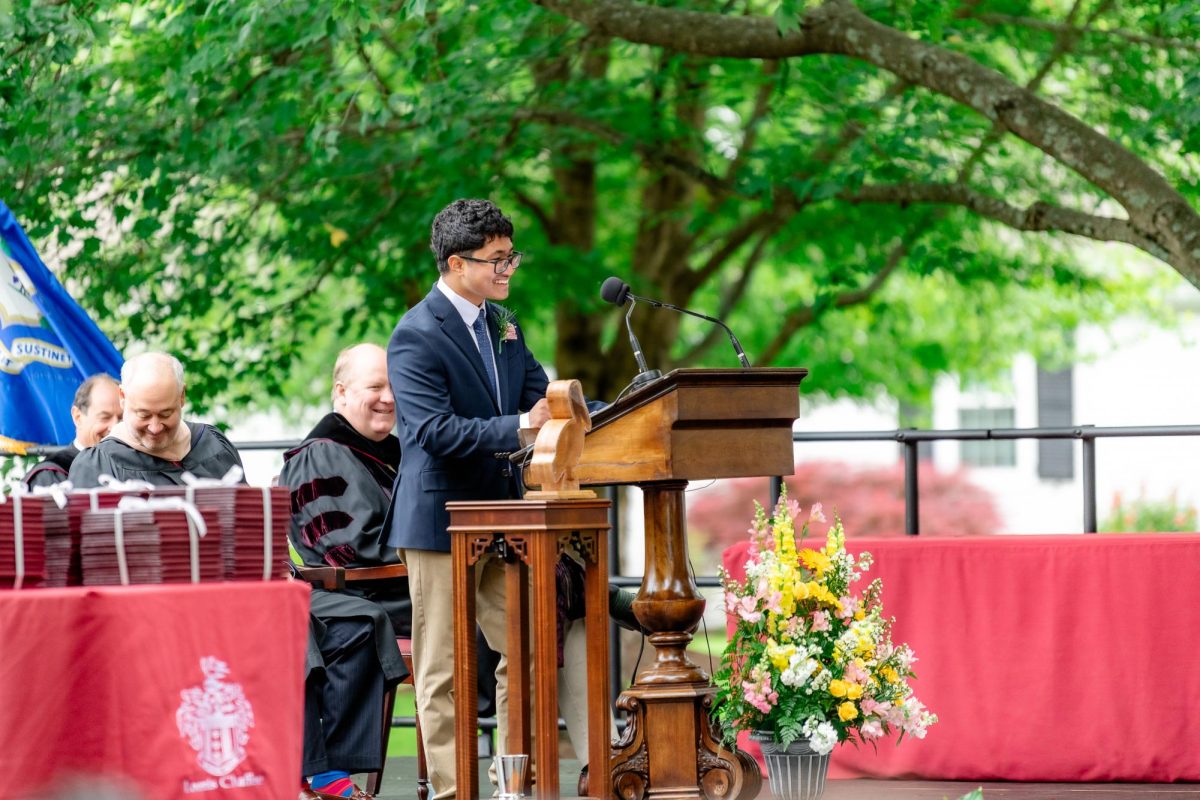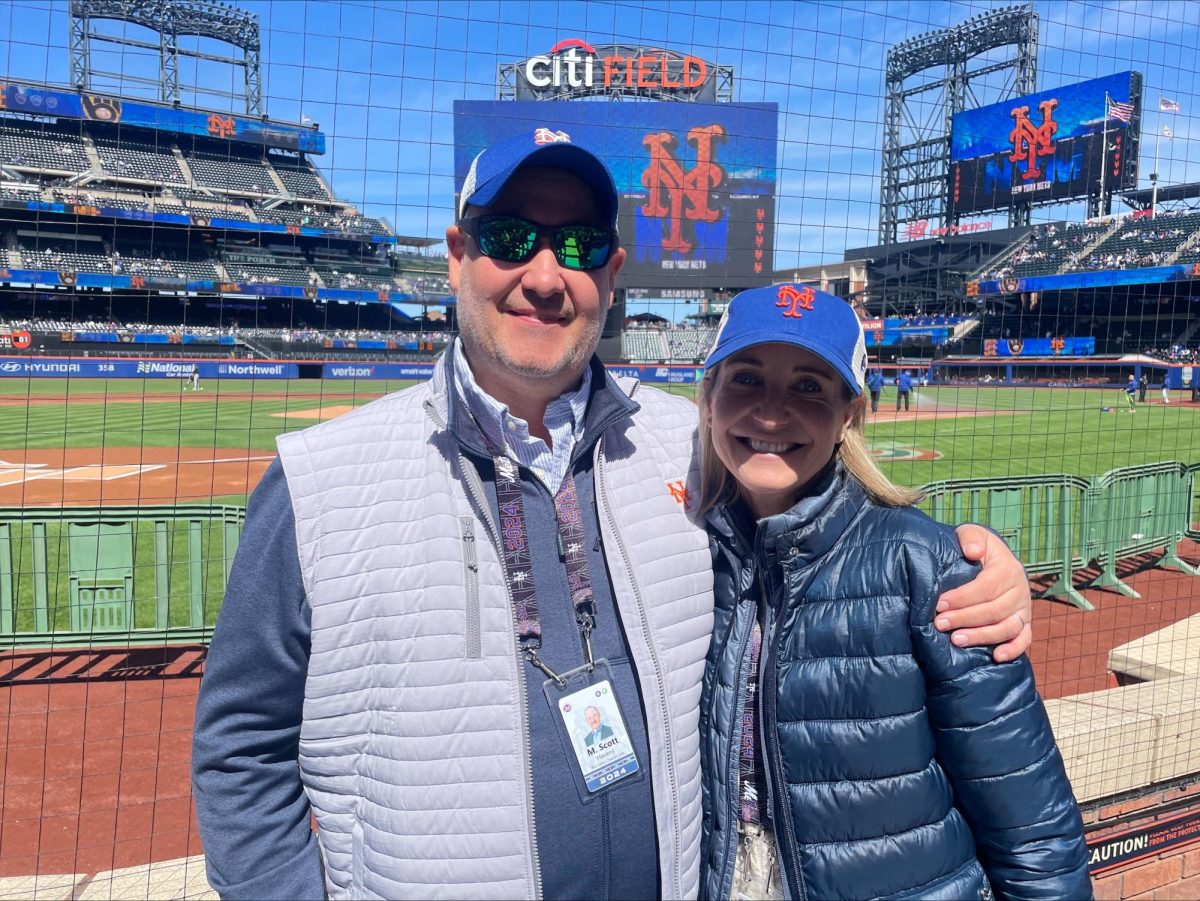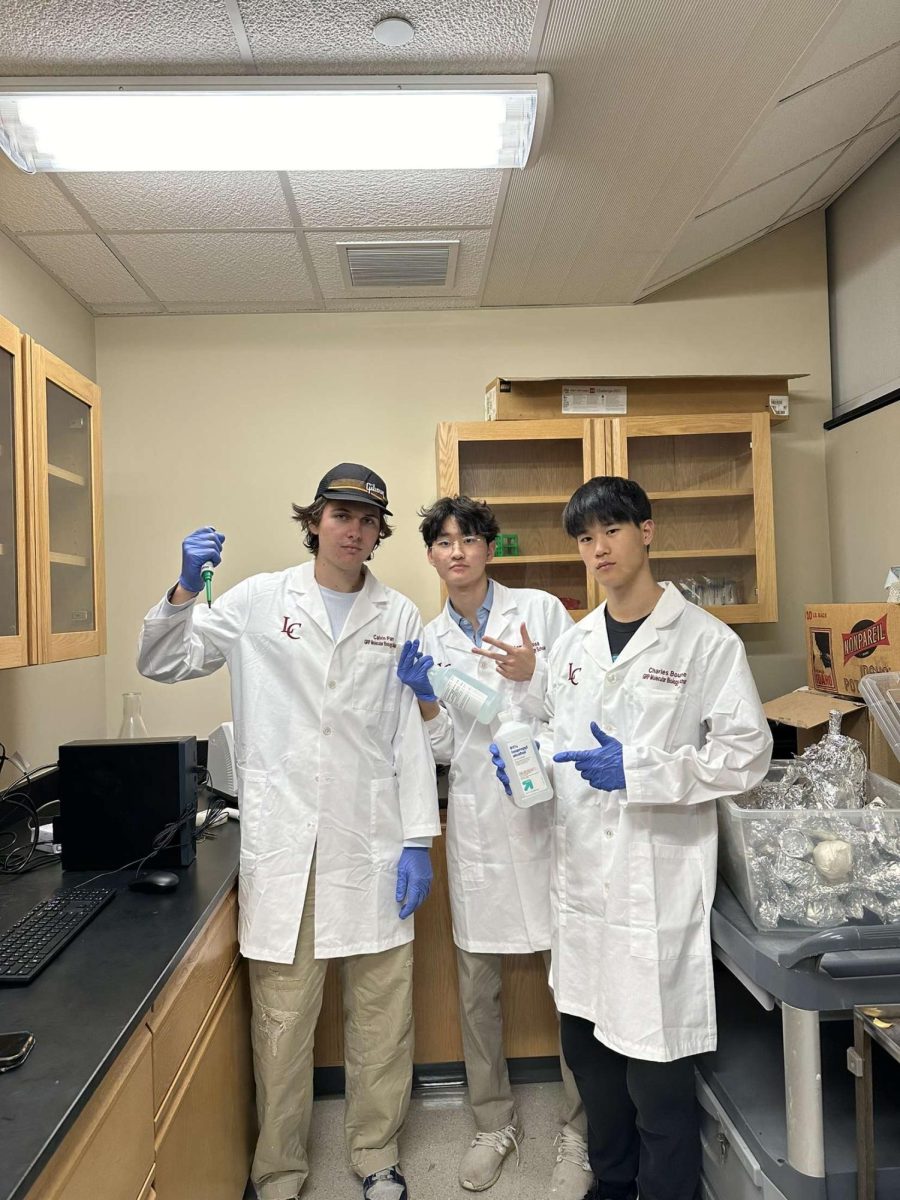In a class where students ditch the textbook and venture out off campus to pitch solutions to real world businesses, learning takes on a whole new meaning. The Innovation Trimester at Loomis Chaffee holds eight risk taking students who wanted their final term on campus to break the mold.
Rather than following the traditional routine of walking from class to class and cramming for final exams, you’ll find these students spend most of their day in the Pearse Hub for Innovation, tucked just beneath the dining hall if they aren’t venturing off campus to seek a new problem to solve. There, they sketch prototypes, refine pitch decks, and huddle over sewing machines, building solutions for real problems faced by local organizations. The I-Tri gives these students a true full-time immersion into creative problem-solving, community engagement, and entrepreneurial thinking.
For the students, the I-Tri offers a refreshing alternative from traditional coursework, one that’s more aligned with their personal interests. Postgraduate Harry Salters saw it as a perfect platform to dive into his future, expressing how “The opportunity to learn a lot about problem solving and working with real businesses is very different from my regular classes.” Thinking ahead, he explains “I’m looking to do business management in college, so this felt like a great start.”
Will Stillman, a senior, echoed Harry’s appreciation for the program. “Learning how to present my solutions and research to companies is something I’d never done before, and it’s been really valuable,” he said. Learning how to communicate, pitch, and adapt in professional settings is one of the I-Tri’s most impactful takeaways, and a common theme among the students participating.
The structure of the I-Tri is designed to be unlike anything else in the Loomis curriculum. “The I-Tri allows students to explore something new and different, working closely with businesses on real problems using design thinking,” said Ms. Appel, one of the program’s teachers.
The goal, according to faculty, isn’t just innovation, but reflection. “One of the biggest takeaways for students is the ability to reflect on their strengths and articulate what they bring to teams, skills they use beyond school, like in college interviews and jobs,” said Ms. Solomon, Associate Director of Innovation.
With no traditional class periods or final exams, the program gives students what I- Tri faculty call “the biggest gift”: time. “Time to try things repeatedly, without being limited by a typical class schedule,” said Solomon.
Each year, projects and partner organizations are entirely new. “We’ve never repeated a project or organization,” said Solomon. “Students always do something unique.”
In the I-Tri, students aren’t just learning about the world. They’re stepping into it.
Whether they’re pitching to professional sports teams, collaborating with nonprofits, or navigating the uncertainty of group projects, they’re developing the skills that matter most: adaptability, empathy, and creative confidence.
By the end of the term, students walk away not with a report card, but with real-world experience and the ability to reflect. The program challenges them to think deeply, act boldly, and reflect honestly. Not just about the problems they’re solving, but about the people they’re becoming in the process.
As Loomis Chaffee seniors look ahead to college and beyond, the I-Tri offers a chance to make their final trimester not just different, but defining.











